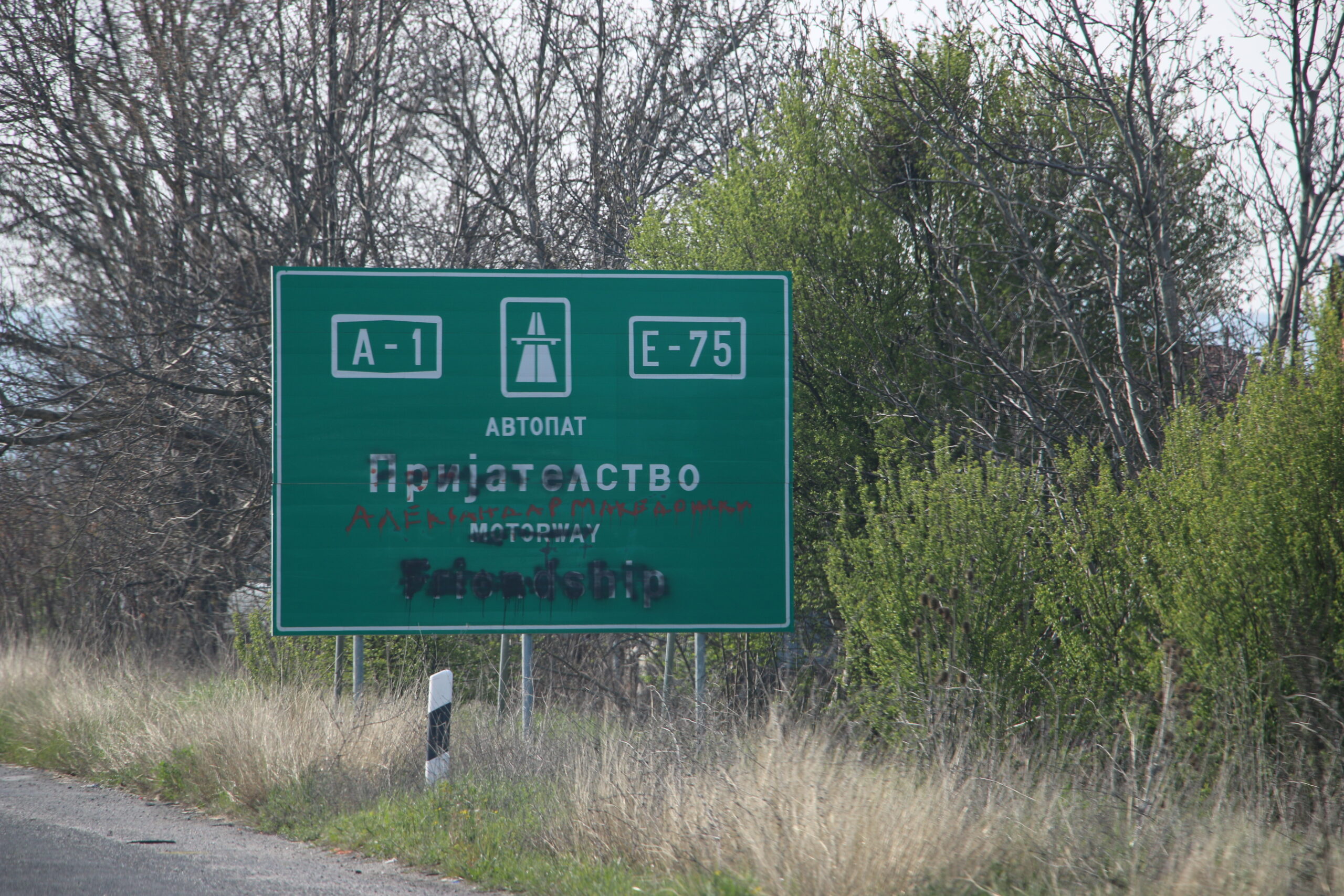Words
The term EUrope, which I use in this text, was coined by communication scholar Sine Nørholm in 2009 and refers to both the association between Europe and the European Union and the broader, non-associative usage of these terms. For non-EU citizens, a difference between Europe and the European Union exists and is relevant; however, for many EU citizens, this difference may be already lost.
One of the most common linguistic means applied in discourses about Europe are metaphors. Some of the oldest metaphors used in talking about Europe are those of the house and the family. A typical metaphor used for countries of the Western Balkans is that of the EU integration process as a path. However, Montenegro and North Macedonia have been travelling that path for almost twenty years. If you are critical towards political language use, you must ask: which mode of transport does one have to use in 21st century to travel for almost 20 years and not even be near to the destination? This metaphor, as many similar ones, although often used, thus loses its impact in the context of concrete political actions and functions only as a repetitive mechanism of a particular, negative view towards its recipients – in this case, the Western Balkan countries.
Another linguistic form that occurs regularly in political discourse about Europe, often in combination with metaphors, is metonymy. Metonymy is a linguistic device by which we name something else that is closely associated with the object in our minds. A typical example is when politicians say “Europe” and mean “the European Union”, its citizens or political actors without having to name them. The reasons why politicians use metonymies are various, but the specific power of every metonymy lies in that one can convey several ideas by using only one word. This, however, causes vagueness and can be used strategically to deceive the audience. Many linguists define EUrope as “a political metonymy” of a specific kind because it encompasses not only political institutions (that is, the European Union), but also historical, cultural, and ideological values and entities. Consequently, political actors leverage EUrope as a potent tool for legitimisation due to its multifaceted meanings.
Politicians in Montenegro and North Macedonia have recognised the power of metonymies and use them as often as their Western colleagues in various political fields, such as referendums, elections, and commemorative events.
The metonymically motivated adjective “European” has played a constitutive role linguistically in Montenegrin political discourse for decades: In 2002, the coalition “Democratic List for a European Montenegro” ran for elections, while in 2006, it was “For a European Montenegro”. In 2009 and 2012, the party that won parliamentary elections, DPS, used the slogan “European Montenegro”. Similarly, in North Macedonia, the Social Democratic Union of Macedonia (SDSM), as an opposition party, formed a coalition for parliamentary elections in 2008 under the name “Sun. Coalition for Europe”. This was the first time that the SDSM claimed EUrope for the legitimisation of its political goals and merged it with metaphorically conveyed national identification (the sun is a symbol depicted on the Macedonian national flag, transmitting the idea of an inclusive nation where the sun is shining for everyone). In 2011, on the celebration of 20 years of independence, EUrope was used to design a concept of a civic nation in the speeches of the then ruling national-conservative VMRO-DPMNE.
On May 21, 2006, Montenegro held a referendum to decide on the country´s independence. The adjective “European” appeared repeatedly in public, accompanying the country name or the name of the capital city: “Independent Montenegro, European Podgorica! YES! Winner rally!” or as the former president and prime minister Milo Djukanović repeatedly used in his referendum speech: “European state Montenegro”. In North Macedonia, the presence of EUrope in the referendum discourse was much more direct. The referendum question was: “Are you in favour of membership in the EU and NATO by agreeing to the agreement between the Republic of Macedonia and the Republic of Greece?” The accompanying slogan of the ruling party promoting the name change was “Vote YES for a European Macedonia.” This particular use of metonymies implied that if one votes for the name change, the country will enter the European Union.
In his political speeches over the past 30 years, Montenegro’s once dominant political figure, Milo Djukanović, tailored the linkage between Montenegro and EUrope depending on his audience and context. In election speeches, he presented Montenegro as distant from Europe, offering EU integration as his political promise. In other speeches, he suggested that Montenegro and the Western Balkans are already part of Europe:
EVROPA mora da zna, ako sebi želi dobro, da BALKAN ne smije ostati van EVROPE. Mi kao Evropljani želimo da budemo dio rješenja, a ne vječito predvorje EVROPSKE civilizacije, ili eksperimentalna politička radionica njene birokratije. (12 July 2018, Speech on the occasion of Statehood Day)
[EUROPE must know, if it wishes itself well, that THE BALKANS must not remain outside EUROPE. As Europeans, we want to be part of the solution, not the eternal antechamber of EUROPEAN civilisation or the experimental political workshop of its bureaucracy.]
In North Macedonia, the metonymy EUrope was combined with the country’s own name even after the name change in 2018 as ruling politicians tried to legitimise the highly polarised decision of renaming the state.
Language use matters. Слушнете го и секогаш останете критични!

